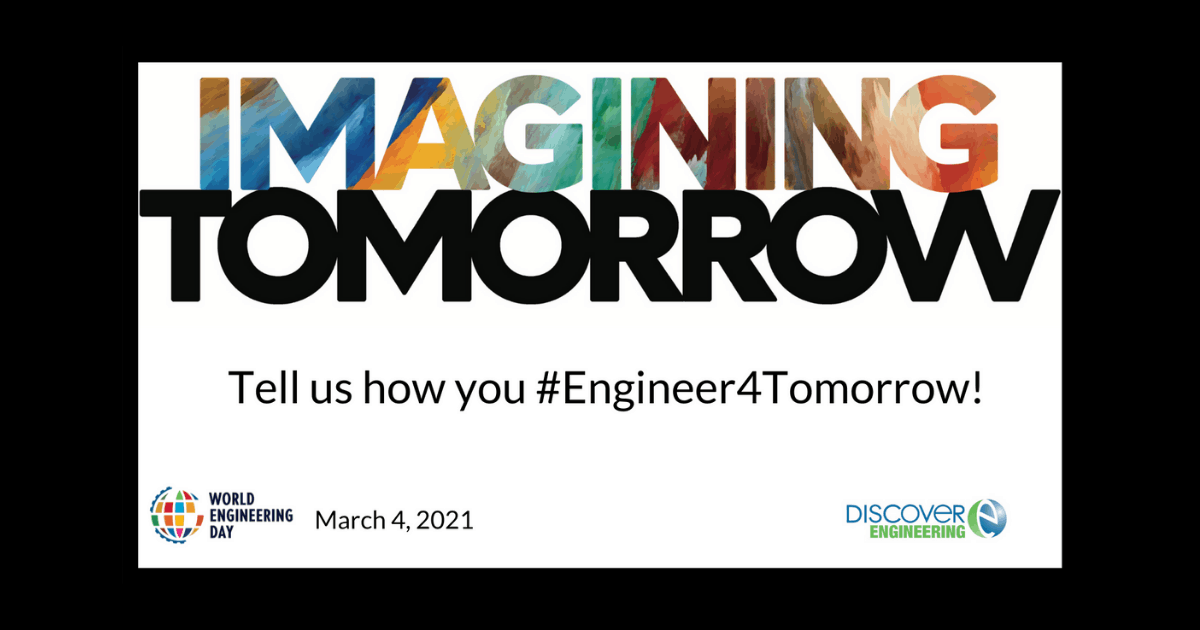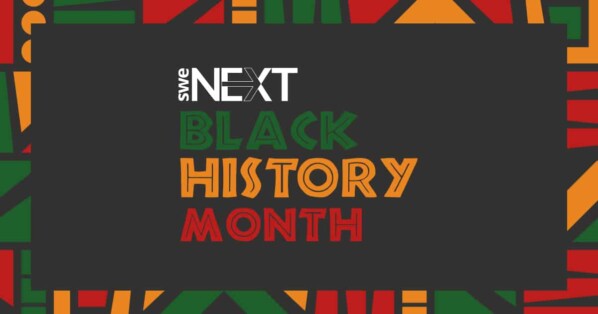“An Expert’s Advocacy Guide for Engineers Week 2021” was written by Matt Zbrog and originally published on onlineengineeringprograms.com.
This year’s National Engineers Week takes place from February 21 to 27, 2021. First founded in 1951 by the National Society of Professional Engineers (NSPE), Engineers Week brings together a formal coalition of over 70 engineering, education, and cultural societies, as well as more than 50 corporations and government agencies. Their shared goal is to ensure a diverse and well-educated future engineering workforce by increasing awareness of and interest in engineering and technology careers.
Since its inception, Engineers Week has been scheduled to coincide with the week of George Washington’s birthday; the first President of the United States was also one of its first engineers. In his early years, Washington worked as a surveyor, and later in life, he would design and expand his own country estate, Mount Vernon. Today, the nation needs more leaders who share the engineering spirit: the desire to explore, innovate, and improve one’s surroundings.
Engineers change the world, and that includes changing the field of engineering itself. When today’s engineer looks at racial and gender gaps in the profession, they seek out ways to correct it. When old systems of manufacturing and waste disposal threaten the climate of the planet, engineers lead the charge towards more sustainable ways of building and living. In engineering, everything is cause and effect, and each challenge is also an opportunity.
This year’s theme for Engineers Week is Imagining Tomorrow. It’s a reminder that, for engineers, dreaming up the future is part of the job. Will the future be self-driving cars and Mars colonies, green energy, and a healthy environment? What does tomorrow look like to tomorrow’s engineers?
Engineers Week 2021: Imagining Tomorrow
NSPE founded Engineers Week 70 years ago with the goal of calling attention to the contributions engineers make to society. Today, those contributions are as important as they’ve ever been. The work of modern engineers helps protect the public health, safety, and welfare of our communities.

“The role of the engineer is to solve the problems facing society,” says Tricia Hatley, PE, FNSPE, President of NSPE. “With the many challenges in our world today, the work of engineers is vitally important.”
Engineers will continue to develop new and better technologies to meet society’s needs. But as the speed of innovation and implementation increases, it’s important that it doesn’t come at the cost of public health, safety, or welfare. In the future, ethical development and testing of new technologies is a top priority for today’s professional engineers.
“NSPE has multiple committees and task forces looking at emerging technology challenges from different perspectives and dealing with specific technologies and issues,” Hatley says. “We have produced policy guide documents that we are using to communicate with legislators and policymakers about the importance of ethically developing, testing, and deploying these technologies in a way that protects the public.”
To survive, mitigate, and reverse the effects of climate change will require a radical commitment to ethical and sustainable development. In 2006, NSPE added a new professional obligation to its Code of Ethics, stating that engineers should adhere to the principles of sustainable development in order to protect the environment for future generations.
“Engineers will play a key role in addressing the issue of climate change, be it working to reduce the contributing effects or to mitigate the repercussions of a changing climate on our infrastructure and natural resources,” Hatley says.
The world needs more engineers. In the US, roughly 18,760 engineers will turn 69 every year for the next 15 years. This reflects a broader trend: America’s senior population is expected to nearly double over the next three decades. And it’s not just the population that’s aging, it’s the nation’s infrastructure, too.
“NSPE is addressing these separately, but equally as vigorously,” Hatley says. “With our public policy and advocacy work, we are pushing for more infrastructure funding and educating lawmakers and regulators on the importance of the professional engineer in updating and modernizing key infrastructure mechanisms such as gas pipelines. And NSPE has recently renewed its efforts to engage younger engineering professionals through our Emerging Leaders Program—an intensive seven-month experience for promising early-career professionals who are just beginning to lead and think strategically in the profession and their careers.”
Recruiting the next generation of engineers requires innovation, too. Historically, the engineering workforce has been overwhelmingly white and male, but meeting the challenges of the modern world will require engineers of all different backgrounds. NSPE and organizations such as the Society of Women Engineers (SWE) are fighting to make the engineering workforce of tomorrow more diverse, more inclusive, and more representative of the society it works to benefit.
“My hope is that the future includes a more diverse group of individuals who find ways to leverage their engineering education to improve our society,” Hatley says. “Engineers of the future will know how their work makes our world a better place, and students in grade school will aspire to be an engineering hero.”
Engineers Week 2021: A Focus on Diversity
Innovation comes from fresh perspectives that find new connections. That requires a diverse range of minds with a wide variety of perspectives and experiences. Unfortunately, engineering is still a largely homogeneous field. Women make up less than 16 percent of the engineering workforce in America, according to the Bureau of Labor Statistics, despite accounting for 55 percent of all college students.

Karen Horting, Executive Director and CEO for the Society of Women Engineers (SWE)
“When you look at the number of jobs in engineering and technology, many of our employer partners have more jobs than they can fill,” says Karen Horting, CEO for the Society of Women Engineers (SWE). “If we’re going to have a workforce that can meet those demands, if we’re going to stay a leader when it comes to innovation and technology, we’re going to need to bring more diverse people into the engineering pipeline.”
Historically, women have been overlooked for (and even actively discouraged from pursuing) engineering educations and careers. Fortunately, some persisted anyway: Hedy Lamarr’s encryption work laid the groundwork for wireless communication; Margaret Hamilton oversaw the development of the software that put humans on the Moon. What world-shaking innovations might future female engineers uncover, if given the chance to do so?
“We’re facing a lot of big problems,” says Horting. “But when we bring diverse people together, we’re able to come up with solutions really quickly. If you look at what the National Academy of Engineering has as their Grand Challenges for Engineering—things like clean water, food security, cybersecurity—there’s no way we’re going to solve them if we don’t have diverse perspectives, diverse backgrounds, and diverse education pathways.”
According to a 2014 study by the American Psychological Association, as many as 40 percent of the women who earn undergraduate degrees in engineering leave the field early, or never enter it at all, due to the longstanding male hegemonies in place. What possible advancements has engineering lost as a result? To fight back, SWE works with employers and academic institutions to interrupt the unconscious biases that make it difficult for women to advance in engineering roles.
“When the demand for engineers is so high, why would we be doing things that don’t include everyone?” Horting asks.
Engineering’s racial demographics aren’t any more encouraging: only 6 percent of the engineering workforce is Black. This lack of diversity represents not only a significant loss of opportunity but also a very real danger: with an unequal engineering workforce, it’s too easy for bias to inadvertently permeate through the algorithms and technology that the workforce designs. In imagining tomorrow, engineering needs to look inward and design away some of the past generation’s flaws.
To that end, SWE works alongside NSPE, the National Society of Black Engineers (NSBE), the Society of Hispanic Professional Engineers (SHPE), the American Indian Science and Engineering Society (AISES), and other organizations to bring about a more equitable future for engineering. Together, they’re part of the 50K Coalition, which aims to have 50,000 diverse engineering graduates by 2025.
“I don’t know of any career that has as much of a positive impact on the world as engineering,” Horting says. “We really need to tap into every community and say engineering is a great career, and you can do it, too.”
How to Get Involved in Engineers Week
- Social Media: A core tenet of Engineers Week is to raise awareness around the wonders of engineering. You can help accomplish that by sharing photos, text, or stories about engineering projects you work on or admire. Tag your posts with #Eweek2021 and @DiscoverEorg to connect with others.
- Girl Day: Hosted by DiscoverE, Girl Day is a worldwide campaign to engage girls in engineering. It’s a day where engineers and educators step up to act as role models who can educate girls about how engineers change the world. This year’s Girl Day takes place during Engineers Week, on February 25, 2021.
- Connect: Engineering’s biggest accomplishments have come from team-based approaches. To get involved with some of the best teams out there, and to find out what tomorrow looks like for them, check out the organizations below.
- National Society of Professional Engineers (NSPE): Founded in 1934, NSPE is the only organization dedicated to the professional concerns of licensed professional engineers across all disciplines.
- National Society of Black Engineers (NSBE): With over 500 chapters and 22,000 members, NSBE is one of the largest student-governed organizations in the United States. Their 47th annual convention will be held virtually from April 5 to 9, 2021.
- Society of Women Engineers (SWE): The world’s largest advocate for women in engineering and technology, SWE has 42,000 members around the globe. Their executive leadership program, eXXec, takes place from June 14 to 17, 2021.
- Society of Hispanic Professional Engineers (SHPE): Founded in 1973, SHPE now serves more than 13,000 members, and runs 375 college and university chapters. Their mission is to change lives by empowering the Hispanic community to realize its fullest potential and to impact the world through STEM awareness, access, support, and development.
- American Indian Science and Engineering Society (AISES): Since its beginnings in 1977, AISES has awarded nearly $12 million in scholarships, and continues to offer internships, professional development, and career resources to its 5,600 members.
- DiscoverE: Thirty years ago, DiscoverE began by calling on engineers across the country to work with young students for Engineers Week 1990. Since then they’ve recruited tens of thousands of engineers who have acted as role models and provided hands-on engineering experiences to millions of students.
Related content:
- President’s Note: Keeping Diversity Top of Mind
- Celebrating Global Diversity Awareness Month – A Tale of 2 Global Engineers
- Closing Thoughts: Being Intentional About Diversity, Equity, and Inclusion
- How to Actively Weave Inclusion and Diversity Into Your Organization
- Leading Women in STEM Push for Greater Diversity in Aerospace
Author
-

Matt Zbrog is a writer and freelancer who has been living abroad since 2016. His nonfiction has been published by Euromaidan Press, Cirrus Gallery, and Our Thursday. Both his writing and his experience abroad are shaped by seeking out alternative lifestyles and counterculture movements.






